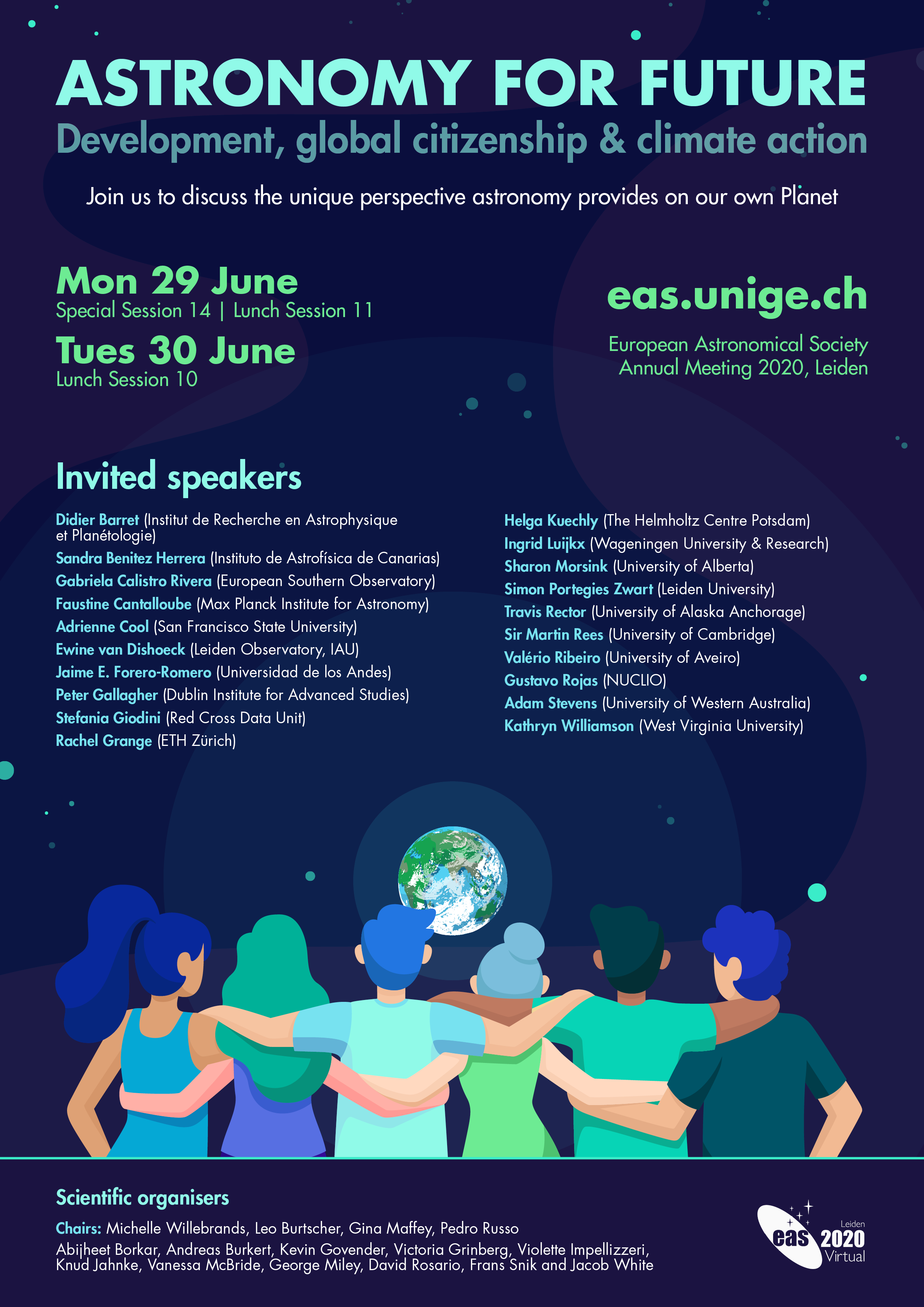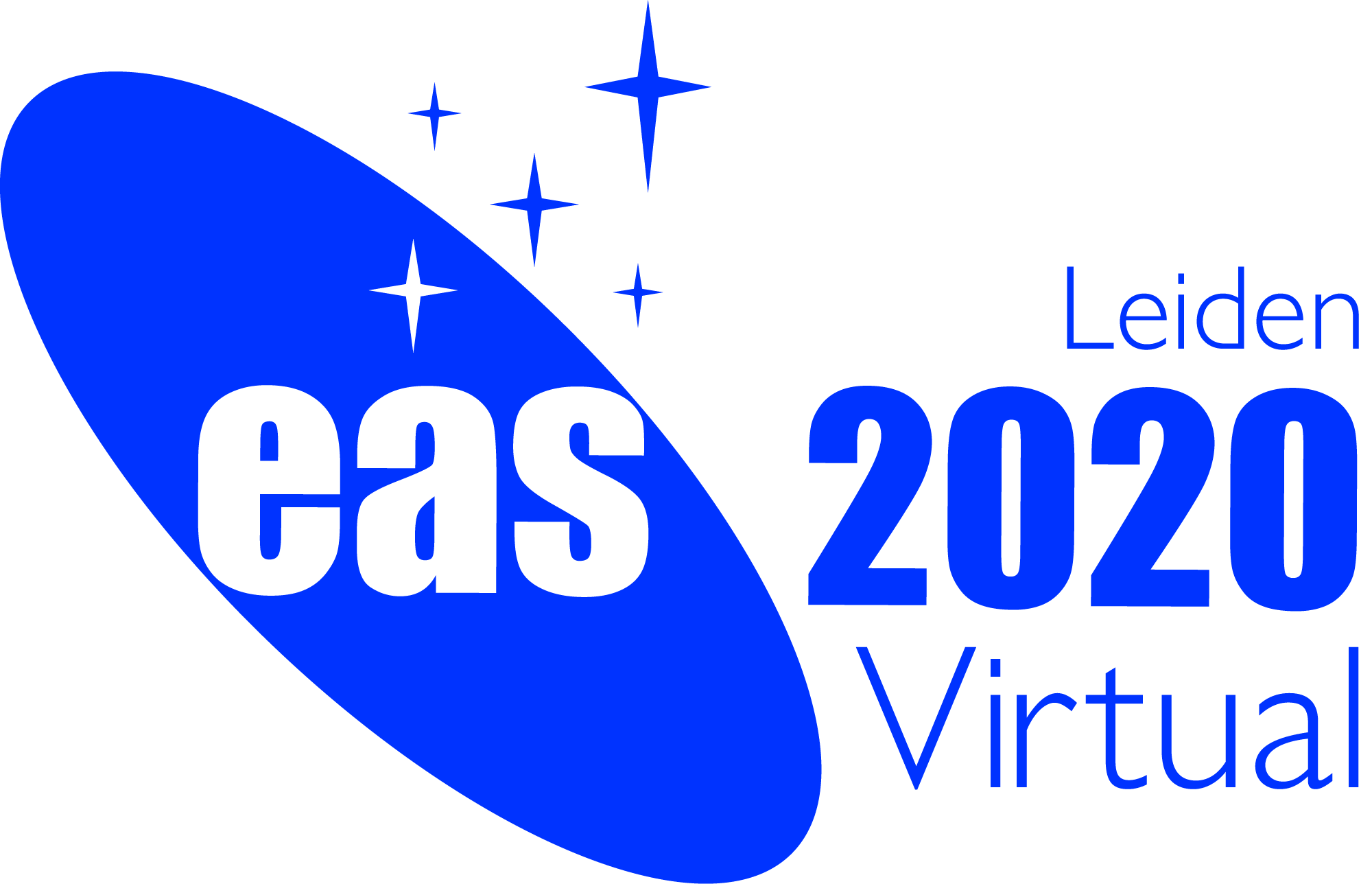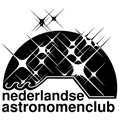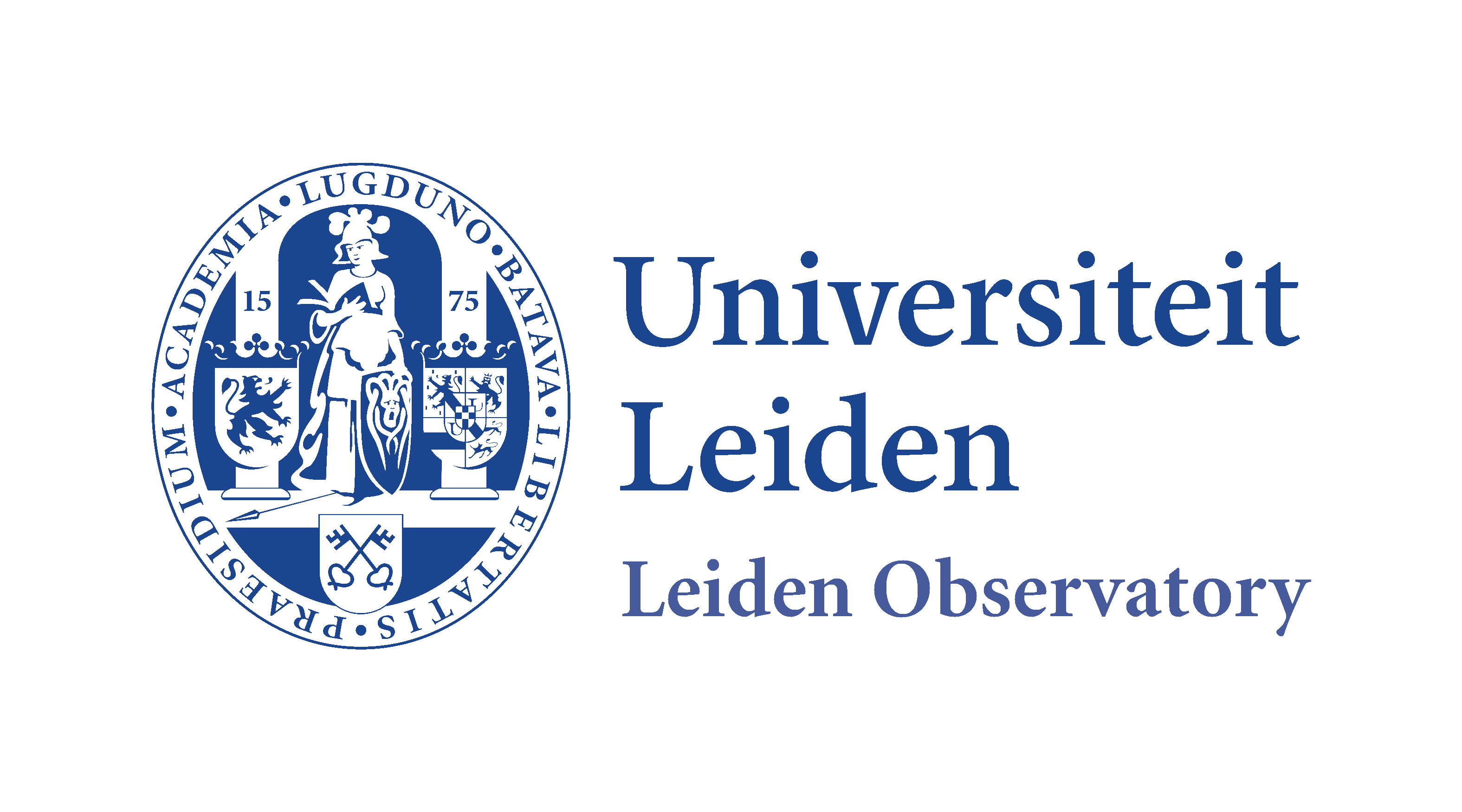Lunch Session LS11
29 June 2020
Astronomy for Future: Maintaining world-class research and collaboration in the climate crisis
Aims and scope
 Astronomy provides society with a unique perspective of both our place in the Universe and the fragility of our planet. In the face of increasing global temperatures and environmental degradation there is a pressing need for astronomers to realise the role that they can play in communicating the uniqueness of planet Earth and ensuring a sustainable future. Following extensive informal discussions between colleagues, across countries and institutes, it is clear that there is an international appetite to openly explore this topic. EAS brings together astronomers from all over the world across the border of sub-disciplines. It is thus the ideal place to address a topic that concerns all of astronomy.
Astronomy provides society with a unique perspective of both our place in the Universe and the fragility of our planet. In the face of increasing global temperatures and environmental degradation there is a pressing need for astronomers to realise the role that they can play in communicating the uniqueness of planet Earth and ensuring a sustainable future. Following extensive informal discussions between colleagues, across countries and institutes, it is clear that there is an international appetite to openly explore this topic. EAS brings together astronomers from all over the world across the border of sub-disciplines. It is thus the ideal place to address a topic that concerns all of astronomy.
As organisers, we strongly believe that astronomers can no longer be bystanders in the climate crisis. Aside from any feeling of ethical obligation to take part in this global movement, there are also the direct practical considerations for how astronomy can operate as a discipline in changing environments. For example, emergency cooling measures such as the distribution of reflecting materials in the atmosphere will severely affect our ability to perform astronomical observations from the ground in the coming decades.
Astronomers have some of the largest carbon footprints in this world, which we need to reduce not just for ethical reasons, but also to remain productive in the coming transformation to sustainable practices. In this lunch session we will hear from one of the world's prime experts on the climate crisis, discuss a practical approach to lower our own carbon imprint through increased remote collaboration and hear about the impact of climate change on observational astronomy.
Our session is open for a few short contributed talks and we encourage contributions particularly from those who have managed the transition to sustainable practices in their projects or institutes.
High-quality version of the poster (PDF, 735 KByte) for download.
Please also note the related sessions
Programme
- Ingrid Luijkx (Wageningen University & Research): "The global carbon budget and CO2"
- Sir Martin Rees (University of Cambridge): "Thinking globally to safeguard the future of humanity"
- Ewine van Dishoeck (President of the IAU; Leiden University): "The IAU's contribution to development and the SDGs"
- Knud Jahnke (Max-Planck-Institute for Astronomy): Decarbonizing Astronomy, Step 1: assessing an institute's carbon footprint
- Nicolas Flagey (Canada-France-Hawaii Telescope): Estimating carbon emissions at CFHT -- the first step towards a more sustainable observatory
Invited speakers
Scientific organisers
Leo Burtscher (chair), Violette Impellizzeri (co-chair), Abijheet Borkar, Victoria Grinberg, Knud Jahnke, Gina Maffey, David Rosario, Frans Snik, Jacob White, Michelle Willebrands
Contact
Updated on Fri Jun 26 09:27:13 CEST 2020
|

 A power cut will shut down all EAS services on Tuesday, 10 January 2017 starting at 7:30 CET.
A power cut will shut down all EAS services on Tuesday, 10 January 2017 starting at 7:30 CET.



